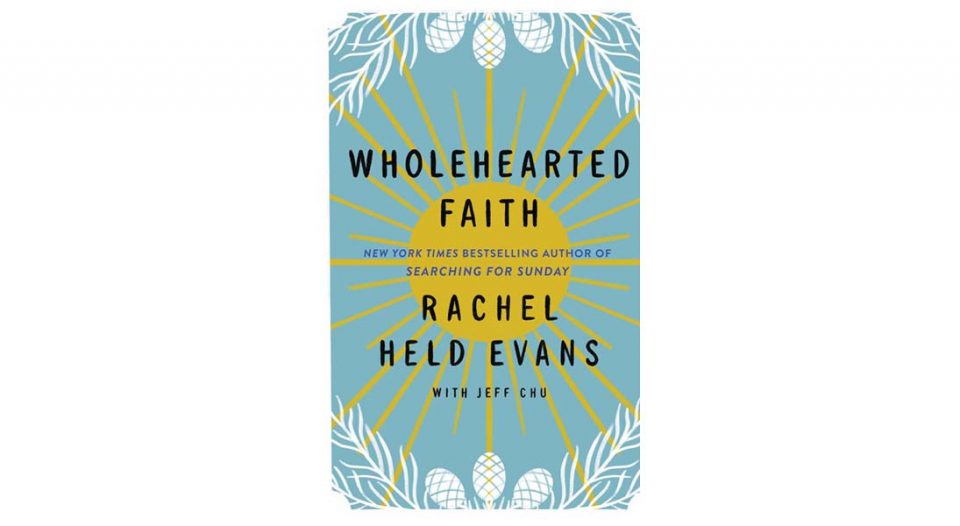Rachel Held Evans, author of a popular blog and many best-selling books, died in May 2019. While her family and close friends grieved, Evans’ reach and legacy meant that many of us felt her loss without knowing her well or at all. I’d been praying when I learned of her illness, and when I heard she was gone, I cried so loudly that my husband heard it all the way downstairs.
Why did her life, and her loss, have such a vast scope? Because of the deep love she carried with her into the world. Her work challenged me to question my perceptions about the faith I’d always espoused and to provide those on the margins with grace and respite. We know that such deep love only reverberates. It makes sense that hers carries on.
This year, two books by Evans have been published posthumously: a children’s book called What Is God Like? (Convergent Books), co-authored by Matthew Paul Turner and illustrated by Ying Hui Tan, and Wholehearted Faith (HarperOne), a book for adults that was shepherded into print by author Jeff Chu. I’ll admit, I didn’t feel ready to dip into these. I could hardly stand to think that this was the last new writing by Evans I’d ever read.
I met Evans in person once, at a conference, surrounded by many people, and interviewed her by phone for Living Lutheran—a conversation that ranged far beyond a traditional interview. In these fairly small interactions she made me feel seen and heard and loved, as if I were landing in a safe, spacious place. From all the tributes to her I’ve read, I know that my experience wasn’t unique. Evans had a gift.
That gift has always wound its way into her writing, and these new books are no exception. Her children’s book ends with this: “Whenever you aren’t sure what God is like, think about what makes you feel safe, what makes you feel brave, and what makes you feel loved. That’s what God is like.” This is the book I was hoping to find as my 2-year-old gets wiser and more curious about faith. Evans didn’t see anything like it in the world and wanted to write it for her own small kids.
The book she wrote was about the love and breadth of God—so much bigger, wider and farther outside the box than most of us think.
Wholehearted Faith reads as if Evans wrote it entirely herself. It displays two hallmarks of her writing: a fascination with questions and a love for Scripture that leads her to ask those questions. She explores the Jewish tradition of midrash; personal stories that draw us into her world, made more poignant now that she’s no longer here; how to love the evangelical tradition from which she came; and how she embraced the spiritual home she found in the Episcopal Church.
I once heard an author say that most authors write the same book over and over. If Evans did that, the book she wrote was about the love and breadth of God—so much bigger, wider and farther outside the box than most of us think. She wrote about how God adores people, every single one of them.
I wish she had stayed with us; mostly, I wish she could have stayed with her beloved family. But I will always be grateful for the way she never stopped talking about love and never stopped challenging the boundaries we try to draw on love.
In the last chapter of Wholehearted Faith, Evans writes: “I hope you’ll feel deep within your heart and with every cell of your being that you are held and embraced by the God who made you, the God who redeemed you, and the God who accompanies you through every end and onward to every beginning.”
I trust that God has faithfully accompanied Evans and continues to do so. May her books be a reminder, an invitation, to look around and notice that God accompanies us too, always, with love.





